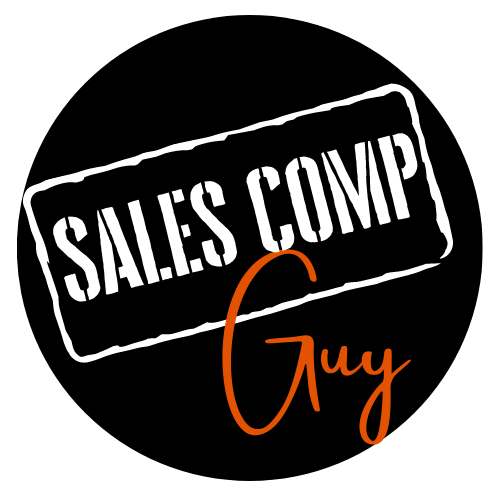5 Company Values that Underpin a Winning Sales Culture
Company Culture...or, the Way We Do Things Around Here

It can be tempting to view your sales team as an entity above or outside of the usual company culture. After all, you want them to operate unfettered, to be able to shift and stretch to reach their goals.
However, lack of cultural alignment can result in a variety of problems, including rifts between sales and other departments, questionable ethics in sales tactics, and high turnover rates in sales functions.
The fact is, your sales team will embody the values and mission of your organization whether you like it or not. For example, if you’re noticing a “sell at all costs” attitude among your salespeople and potentially unethical selling tactics, you may want to look at the culture you’ve created. Do your people feel secure in their jobs? Are they looking at the long-term strategy or just trying to survive today?
On the other hand, if you nurture a culture that values the human element and wants to maximize your employee’s strengths, provide security and belonging, and create the potential for long-term careers, you may see different behaviors among your sales team.
Building a winning sales culture starts with building a winning organizational culture.
Organizations are like individuals, each with their own personalities, talents, and goals. So I can’t tell you what your values should be. However, there are certain values that apply to nearly every organization and can bolster your sales team’s success.
A Culture of Innovation
One of the basic needs for creating a culture of innovation is diversity. By recognizing that great ideas can come from anywhere, inviting everyone to share their ideas, and rewarding ideas no matter where they come from, your employees won’t be inhibited by fear, and you’ll have a large pool of collective creativity to draw from.
Innovation should be happening at all levels of your business, from product development to sales strategy. You should see unavoidable growth if your company has a strong culture of innovation.
A Culture of Growth
There’s nothing wrong with a little competition, right? It drives us to be better and do better. It brings out what’s unique in our business. And it’s also in our nature as humans.
However, a culture based primarily on performance can quickly burn out your employees, leaving them feeling overwhelmed, anxious, and ultimately hurting their capacity. So, while you don’t want to do away with competition altogether, it’s also important to balance it with a more personal development and purpose in their work. It’s more than just the hustle!
People want to do their best and will perform competitively and happily if they have everything they need in terms of security, health, and good quality of life.
A Culture of Resilience
If nothing else, the pandemic taught us to be agile, resilient, and adaptable to uncertainty and crisis. Adopting hybrid work models, remote work technology, and thereby reducing costs for office space, helps keep us nimble so we can move quickly and take more organizational risks in the sales world.
Resilience permits you to pivot and recover quickly from unforeseen events. This allows your sales staff to do their job with less fear of organizational plight.
A Culture of Experimentation
Data is your eyes and ears. With good visibility on your numbers, you’re able to make the right moves towards the right results. It also gives you the confidence to make decisions that support your other cultural values. If you recently added a new competitive initiative and your numbers went down, you know that your initiative wasn’t effective. You may or may not be able to tell why, but you’ll be able to pivot before you lose too much.
Being able to experiment in sales is essential to getting the results you want. With a culture of experimentation, you can give your sales staff the support they need to test new ways of selling, new language, new lead sources, etc. You’ll be able to quickly see the levels and degrees of effectiveness and ineffectiveness in order to make better decisions.
A Culture of Trust
This is probably the most important one, and it probably goes without saying. You need to be able to trust your staff. And your staff need to be able to trust you!
This ties back to the culture of growth. Do you trust that, given the fulfillment of their essential needs, your employees will perform optimally? If the idea of dialing back your performance-based culture in favor of a long-term growth-based culture scares you - do some experimentation. Test it. Watch your numbers. Get feedback. There is a balance to be struck.
Regarding your sales staff, this just means you need to follow through with your promises. This is why it is so essential to carefully craft and regularly review your sales compensation plan. If you have a clear compensation plan, your new hire agrees to it, and you follow through, you’ll have an unstoppable salesperson working for you.
Creating a culture that supports your goals is vital to reaching those goals. I don’t recommend hiring any further salespeople until you’ve firmly established who you are as a company. This is ultimately the soil from which your business will grow.
A Winning Sales Culture is a Fair Sales Culture
Culture is so hard to define and identify because, done right, it exists throughout everything, from the day-to-day attitudes of the people all the way down to the details in your documentation.
When it comes to sales compensation, one of the greatest challenges to a positive culture is unfairness or the perception of unfairness in your compensation plan.
Even when your comp plan is fully detailed, there will always be exceptions that cause you to have to rethink how you’re divvying out commissions or bonuses, and there will always be disputes over which salesperson wins that big deal pay or how much they get.
To create a fair sales culture, you have to first want to do the work it’s going to take to get there. Building fairness into everything you do is going to mean looking at your documentation, your processes, and your organizational hierarchies.
Best practices for fairness in sales compensation include:
- Create a compensation philosophy and align your comp plan to that philosophy.
- Check your job descriptions for biased language.
- Track salesperson performance on the pay curve to identify potential outliers or problems regularly
- Assess your territory and opportunity based on current sales data.
- Create clear processes for the administration and governance of your sales compensation plan.
And that’s just a few things. Most of all, it requires being open-minded about your own biases and being willing to be wrong so that you can start to work towards that winning sales culture.
Download Your Free Fairness Checklist













